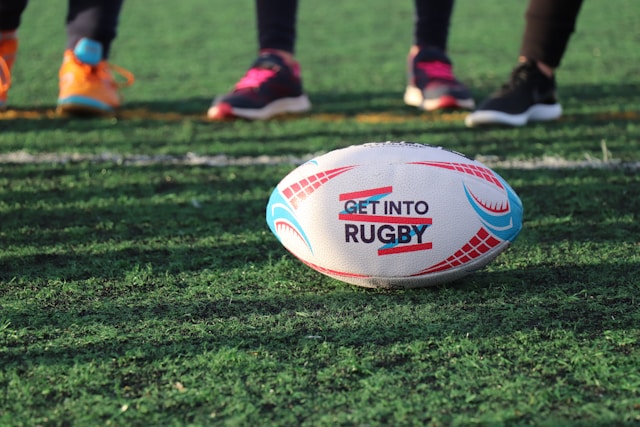After a disappointing series against Australia, wales reflects on a tumultuous year filled with challenges and losses.
Wales’ international rugby season has come to an agonizing end following a 36-28 defeat to Australia in Melbourne. While the squad gears up for a final friendly against the Queensland Reds, the Test calendar has concluded, leaving players and fans grappling with the outcome.
The rugby season kicked off nearly a year ago with optimism, as Warren Gatland’s team secured a 20-9 victory over England in a World Cup warm-up match. However, what followed was a rollercoaster ride of highs and lows, with the Wallabies ultimately wrapping up the series 2-0 despite Wales’ spirited performance in their final outing.
Embed from Getty ImagesThroughout the year, Wales experienced both triumphs and heartbreaks. They entered the World Cup pool with promise, achieving a stunning 40-6 victory against Australia in Lyon. Yet, a series of nine consecutive Test defeats overshadowed these highlights, culminating in a last-place finish in the Six Nations—a first since 2003.
Starting the season ranked ninth in the world, Wales plummeted to 11th by its conclusion, their lowest position since the rankings began. Over 16 Tests, they managed only five wins against 11 losses, facing formidable opponents like England, South Africa, and Argentina. Their solitary victories in the World Cup came against Fiji, Australia, Georgia, and Portugal before a crushing quarter-final exit against Argentina.
Wales now faces a 12-month winless streak heading into their next match against Fiji in November. A defeat in that game would match their record for consecutive losses, intensifying the urgency for change.
Gatland’s return to coaching, following a successful previous tenure, has not yielded the desired results. He has navigated significant challenges, including the loss of veteran players and a slew of injuries. The departure of stars like Alun Wyn Jones and Justin Tipuric, alongside injuries to key players, forced Gatland to deploy 64 different players this season.
Despite the challenges, Gatland remains determined. Following a clean sweep of defeats in the Six Nations, he offered his resignation, only to be supported by the WRU. His current win rate stands at 29%, mirroring a similar period in his coaching career.
Looking forward, Gatland must rebuild the squad, focusing on young talent. Dewi Lake’s emergence as a leader provides hope for the future. His performance as captain during the summer series showcased his potential to guide the team through tough times.
With the match against Fiji looming, a victory becomes essential to break the losing streak and restore confidence. Future challenges await, including clashes against South Africa and Australia, and a demanding Six Nations campaign next year.
Off the pitch, the Welsh Rugby Union plans to unveil a strategy to tackle the deep-rooted issues within Welsh rugby. The relationship between Gatland’s “Team Wales” and the professional sides often appears strained, yet unity remains vital for revitalization.
In summary, Wales’ international rugby season closes with disappointment, underscoring the pressing need for transformation and growth. While the road ahead seems steep, a focus on nurturing young talent and fostering collaboration offers a glimmer of hope for the future.
Analysis
Political
The state of Welsh rugby significantly influences its political landscape, particularly regarding funding and support. The Welsh Rugby Union’s (WRU) decisions and policies impact local communities and the sport’s growth. With the team’s struggles, questions arise about resource allocation and the effectiveness of leadership within the WRU. The need for a cohesive strategy becomes paramount to secure the sport’s future in Wales.
Social
Wales’ rugby performance resonates deeply within its society, reflecting national pride and identity. Rugby serves as a cultural touchstone, often uniting communities. The team’s poor performance raises concerns about the impact on grassroots engagement and the youth’s perception of rugby as a viable career path. Additionally, ongoing discussions about inclusivity and diversity in sports further complicate the social narrative surrounding Welsh rugby.
Racial
While the current events don’t have a direct racial component, the broader context of representation in Welsh rugby remains critical. Discussions about the inclusivity of players from diverse backgrounds are vital in promoting a more representative rugby community. This season’s struggles may prompt a reevaluation of recruitment and development policies to ensure diversity at all levels of the sport.
Gender
Gender dynamics within rugby also warrant attention. The contrast between the men’s and women’s teams often highlights disparities in resources and visibility. As Wales’ men’s team faces challenges, the success of the women’s team could serve as a counterpoint, pushing for greater equality in support and promotion within the sport. Continued advocacy for women’s rugby is essential to ensure long-term growth.
Economic
The economic implications of Wales’ rugby performance extend beyond the field. A successful national team can significantly boost local economies through matchday revenues and tourism. Conversely, ongoing losses may lead to decreased attendance and diminished sponsorship opportunities, impacting financial stability. The WRU must develop strategies that not only foster on-field success but also ensure economic sustainability for the sport.
